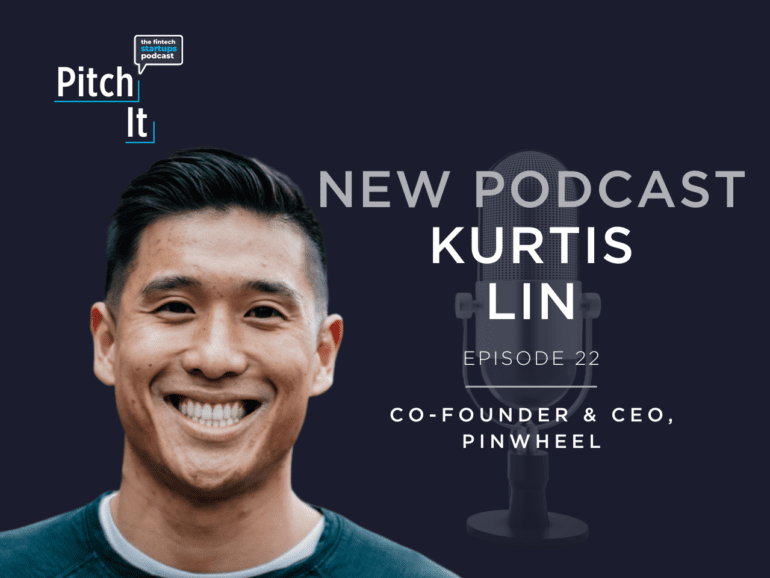Serial entrepreneur Kurtis Lin Co-founded Pinwheel when he and his partners realized it was hard to build payroll products because no one had unlocked the asset from the consumer side.
Two years later, the once small startup raised a $50M series B at a $500 million valuation, all in the name of helping partners turn the paycheck-to-paycheck lifestyle into an outdated past.
“It’s really this real-time visibility into someone’s payroll account, and more broadly, real-time visibility into their financial health. That is kind of the big innovation that we’re unlocking on the data side,” Lin said.

On Tuesday, Pinwheel announced the successful round, with the data to back it up.
The fintech connects with 1,400 platforms, enabling fintechs or banks to build products for 80% of anyone receiving a paycheck in the US.
On top of the Pinwheel payroll API, giants like Block (formally Square) can build options like earned wage access or the ability to repay loans with garnishing before funds even get to a customer’s bank account.
A critical piece that helps institutional clients like Block: Pinwheel received a SOC2 Type 2 License last year, a data security certification that is industry standard for enterprise-level data, but few fintechs have.
“We’ve been able to sign some of the biggest names in the space tell people like Square because we have an enterprise-ready solution,” Lin said. “And that is largely because we have the security as expected of someone who’s servicing a company of that size.”
Why Pinwheel helps end paycheck-to-paycheck
Lin has been building businesses since high school, as LendIt’s Todd Anderson discovered when Lin joined the Pitch It Podcast in September.
Lin creates things from selling supplements to the other football team members to launching a bike tracking business in college. So why did he end up building a platform to fix the payroll system?
“I remember my dad going to go get a mortgage for the first time, and I went with him when I was a kid. I didn’t really know what was going on, but I remember him going to bank after bank, and he kept getting rejected and rejected, door after door, and the first time I saw him lose his cool, literally get frustrated,” Lin said.

“And the reason being is because, as an immigrant to this country, he didn’t have a credit score. In fact, carrying debt is anathema to being a good citizen in Asian culture. It could be realized that the system doesn’t work for a lot of people.”
Lin said it was a rare sight to see his father, stoic, hardworking immigrant, lose his cool. He was a hardcore man who wanted his family to succeed. He showed frustration because the financial system was not built for him.
As Lin grew older, the memory stuck with him and became a core driver of his goals.
Today, 80% of people in the US live paycheck to paycheck, blocked out of the system of loans and credit that many take for granted. That all needs to change, and Lin believes the first point of attack is payroll itself.
“When you look at the consumer financial stack, the payroll system is the most upstream top of the stack that you can be it’s actually sitting on top of your own bank account, right?” Lin said.
“We can build the pipes to control that flow of funds from the source from the actual payroll system.”
Pain points along the way
Lin said that the past year of success would not have been possible without the engineering team’s hard work. Pinwheel works like a team of digital contractors, building with partner firms to launch products from the ground up: keeping the blueprints for later.
For example, Pinwheel spent a lot of the last year working on an earned wage access (EWA) project, and it now has the building blocks in its system.
When another firm comes in and asks, ‘can you guys help us build EWA’ the pinwheel engineers are ready to go.
“We really pride ourselves in working with our customers, and that means really taking it rolling up our sleeves and digging deep,” Lin said.
“A lot of it is our customers will come to us and say, ‘Hey, we have this wild idea to build a new product that can leverage your solution, but there’s a lot of open questions; we don’t know if we can do this. What is technically feasible, what are the regulatory hurdles we have to overcome.”‘
The Pinwheel team solves those problems.
“I’m proud of the team for doing is really digging deep, and really understanding not only our customers and their problem, but also the market right and the regulatory frameworks have been able to navigate all of those to bring new products to market,” Lin said.


